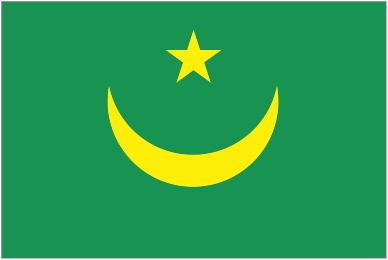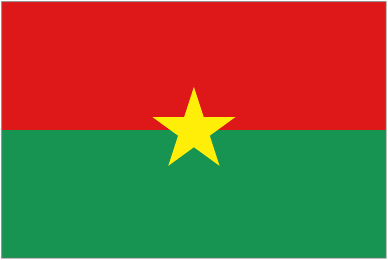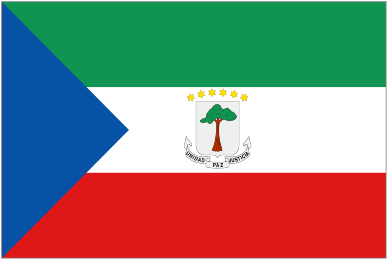International (League) - AI Football Predictions Online

| AI | ||
|---|---|---|
 African Nations Championship Qualification African Nations Championship Qualification | ||
| 2024-12-22 17:00 |
| 1 1 |
| 2024-12-25 14:00 |
| 0 0 |
| 2024-12-26 14:00 |
| 0 0 |
| 2024-12-27 13:00 |
| 1 0 |
| 2024-12-27 16:00 |
| 1 1 |
| 2024-12-28 13:00 |
| 0 1 |
| 2024-12-28 16:00 |
| 1 1 |
| 2024-12-28 16:00 |
| 1 1 |
| 2024-12-28 16:00 |
| 1 1 |
| 2024-12-28 16:00 |
| 1 1 |
| 2024-12-28 16:00 |
| 0 1 |
| 2024-12-28 16:30 |
| 1 0 |
| 2024-12-28 17:00 |
| 1 0 |
| 2024-12-29 12:00 |
| 1 0 |
| 2024-12-29 14:00 |
| 0 1 |
| 2024-12-29 16:00 |
| 1 1 |
| 2024-12-29 16:00 |
| 1 0 |
Statistics for International (League)
The Global Landscape of International Football Competitions
International football epitomizes the spirit of competition that transcends national borders, bringing together diverse cultures and histories on the pitch. The thrill of international tournaments like the FIFA World Cup, UEFA European Championship, Copa América, and the AFC Asian Cup ignites passion among fans worldwide, creating an electric atmosphere that resonates far beyond the stadiums. Every four years, nations vie for glory, each match a story of ambition, loyalty, and heart. This article delves into the intricacies of international football, exploring its history, key tournaments, rising stars, and the socio-political implications that often accompany the beautiful game.
The Historical Evolution of International Football
International football traces its origins back to the late 19th century when national teams began to form, fueled by the burgeoning popularity of the sport. The first official international match took place in 1872 between Scotland and England, setting the stage for a competitive landscape that would evolve dramatically over subsequent decades. The establishment of FIFA in 1904 marked a pivotal moment, as it united various national associations under one governing body, laying the groundwork for organized international competition.
The inaugural FIFA World Cup in 1930 in Uruguay was a significant milestone, showcasing the sport's potential to unite nations. Over the years, this tournament has grown to become the most prestigious event in international football, with teams from around the globe competing for the coveted trophy. Brazil, with its five titles, remains the most successful nation, while Germany and Italy have each claimed the trophy four times. The tournament has not only become a showcase for top talent but also a platform for cultural exchange, as nations send their best players to represent their colors on the world stage.
Iconic Tournaments and Their Impact
Beyond the World Cup, various international tournaments capture the attention of football enthusiasts, each with its unique flavor and significance. The UEFA European Championship, held every four years, features Europe's elite teams and has witnessed memorable moments, such as Greece's stunning victory in 2004 or Portugal's triumph in 2016. The competition not only highlights the continent's top talent but also serves as a springboard for players to showcase their abilities to potential clubs worldwide.
Copa América, the oldest continental tournament, showcases South America's rich football heritage. With teams like Argentina and Brazil leading the charge, the tournament has produced legendary players such as Diego Maradona and Pelé. Recent editions have seen the emergence of new footballing nations like Chile and Colombia, who have made their mark on the international stage, demonstrating that the competition is not solely dominated by traditional powerhouses.
In Asia, the AFC Asian Cup has steadily grown in prestige, with countries like Japan, South Korea, and Australia becoming formidable forces. The tournament reflects the region's increasing competitiveness, highlighted by Qatar's victory in 2019, which showcased the potential of teams often overlooked in global discussions. Each tournament tells a story of national pride, with players representing their countries' hopes and dreams, fueled by the unwavering support of their fans.
The Role of Players as Global Ambassadors
As international football garners attention, players become symbols of their nations, embodying the hopes and aspirations of millions. Icons like Lionel Messi and Cristiano Ronaldo have transcended the sport, becoming global ambassadors for football. Their performances in World Cups and continental tournaments have not only redefined records but have also sparked discussions about national identity and pride.
Younger talents such as Kylian Mbappé and Jadon Sancho are also emerging as global superstars, captivating audiences with their skills and charisma. The allure of these players often goes beyond football; they represent change, hope, and the potential for future generations. Their journeys from youth academies to international stardom inspire countless young athletes worldwide, fostering a love for the game that transcends cultural barriers.
The Socio-Political Landscape of International Football
International football is not merely a game; it intertwines with socio-political narratives that shape nations. Tournaments often serve as a backdrop for political statements and challenges, reflecting the complexities of international relations. For example, the 1978 World Cup in Argentina occurred during a regime known for human rights abuses, prompting protests and debates about the ethics of hosting major sporting events in politically contentious environments.
More recently, issues surrounding diversity, inclusion, and human rights have emerged as focal points within international football. The 2022 FIFA World Cup in Qatar drew scrutiny regarding the treatment of migrant workers and the country's laws concerning LGBTQ+ rights. Such discussions highlight the responsibility of governing bodies like FIFA to ensure that the sport promotes positive change and inclusivity.
The Future of International Football
As international football continues to evolve, the landscape is set to change dramatically. With the introduction of new formats and technology, such as VAR (Video Assistant Referee), the game is becoming more transparent and fair. This evolution aims to enhance the spectator experience while preserving the integrity of the sport.
Moreover, the growing influence of women’s football cannot be overlooked. The FIFA Women’s World Cup has gained immense popularity, reflecting the increasing recognition of women athletes. Countries are investing in women's leagues and programs, fostering a new generation of female footballers who will hopefully inspire future international competitions.
International football remains a vibrant tapestry woven with passion, pride, and the pursuit of excellence. As nations come together to compete, fans are treated to a spectacle that showcases the very best of human spirit and athleticism. The beauty of the game lies in its ability to unite people, creating stories that resonate across generations. With each tournament, new legends are born, and new narratives unfold, ensuring that the global stage of international football remains ever captivating.





























